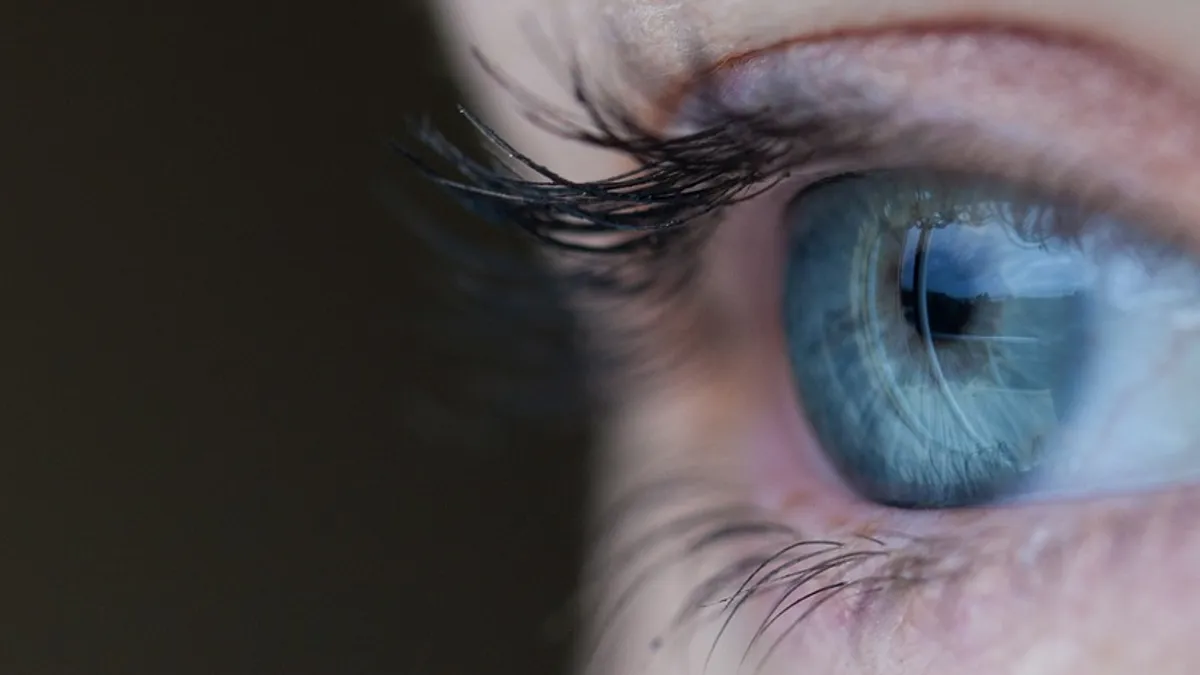Dive Brief:
- RightEye announced Tuesday it received 510(k) clearance from the FDA for its vision screening system that tracks eye movements and correlates them to health conditions.
- The FDA cleared the device to record, view and analyze eye movements for identifying visual tracking impairment in patients.
- The system, which includes RightEye EyeQ tests, reports and training tools, has applications in reading assessment and sports vision training, in addition to functional vision and brain issues, the company said.
Dive Insight:
RightEye, based in Bethesda, Maryland, is carving a niche in eye-tracking testing for vision impairment. Other names in the space include SyncThink, which received 510(k) clearance for its Eye-Sync device in 2016, and Neuro Kinetics, which last month gained 510(k) authorization for new features to its software for tracking a patient’s pupil.
The use of eye-tracking analytics for athletic performance and injury assessment has attracted the interest of collegiate and professional sports teams. RightEye’s system has been used to provide baseline vision screenings for amateur baseball players attending Major League Baseball scouting events. Palo Alto, California-based SyncThink counts the Golden State Warriors and the Pac-12 Conference among users of its eye-tracking technology for monitoring fatigue and problems associated with head injuries.
RightEye’s non-invasive technology captures pictures of eye movements 30 to 250 times a second. Eye-movement data obtained through computer screen-based vision tests and training games are analyzed by the company’s proprietary software, which generates a report afterward with such details as visual speed and accuracy, visual processing, depth perception and dry-eye indicators.
According to the company, assessments that can be performed range from screening for concussion and early indicators for autism and Parkinson’s disease to identifying athletes’ vision strengths and weaknesses and flagging issues that may be impeding reading proficiency. A functional vision screening test recommends computer-based exercises that patients can do at home, while the sports vision trainer offers personalized exercises for athletes who want to improve coordination and reaction times.










